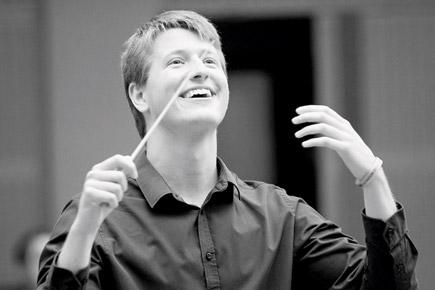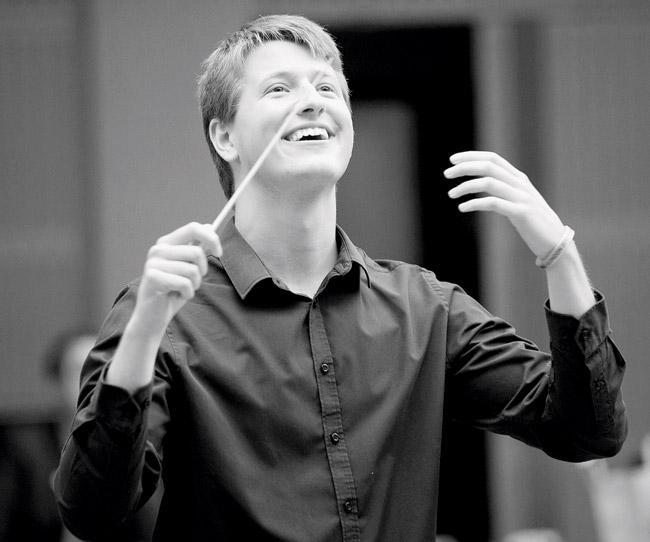Western Classical music aficionados have much to cheer at the 17th season of the Symphony Orchestra of India’s concert series. Soma Das spoke with British conductor Duncan Ward, who at 28 is the youngest conductor to perform with SOI

Duncan Ward, Music conductor
Q. What made you inclined towards music?
A. I don’t come from a musical family. One of my sisters was given a keyboard as a present and I took to it. Seeing this, my parents suggested keyboard lessons. During secondary school, there was a head of music who played records, and got me playing the French horn and composing. At the age of 12, I wrote a musical based on Alice in Wonderland. I showed the manuscript and my school was willing to back me on the project. So, I organised an orchestra; I auditioned staff as soloists and coached them. I directed and conducted it myself. And when I was 13, we staged it at school. This was a milestone for me. Once I won BBC Young Composer of the Year, various commissions started to come in.
ADVERTISEMENT

Duncan Ward. Music conductor
Q. What are the challenges you face as a young conductor?
A. It’s never a problem. It can be a gift. Music is a universal language in which age doesn’t matter. While age brings experience, musicians of all ages respect musicians of all ages, based on their ability and love for the art. I found this to be the case with Pandit Ravi Shankar, who despite the age gap between us, respected me as a musician. Even with the Berlin Philharmonic Orchestra, once I started working with them, they were respectful. Whatever the age, one can come with fresh insights.
Q. Tell us about your association with Pandit Ravi Shankar?
A. The principal of Trinity Music College in London told me he was giving Pandit Ravi Shankar an honorary degree and he would be coming to collect the award. I asked whether I could attend and fortunately they let me. Ravi Shankar had heard about me from mutual friends and he invited me to his daughter Anoushka’s concert. We met a couple of times after. A year later during one of my trips to Delhi with Worldwide Appreciation of Music (WAM; a group spearheaded by Ward to promote musical exchange between India and the UK), I met him at his home. In the middle of the conversation, he said “Duncan, I want to teach you. Can you live here for a summer?” Every day, for several hours (at his summer home in California), he played the sitar and I copied on voice, and piano, discovering ragas. He was like my guru, father, grandfather and best friend. We composed a few pieces together within ragas and put together a piano realisation of a raga. Ravi Shankar’s spirit, and the new world of language and rhythm, and thinking about pitch, now flows out of me. The first Symphony Orchestra piece I wrote after my time with him was highly influenced by this. You can find raga influences in my compositions now.
Q. Which are the countries you have toured in?
A. USA, Japan, China, South Africa, Bulgaria, Germany, Switzerland and the UK. The Royal Albert Hall in London has a special atmosphere despite the problematic acoustics!
Q. Is there sufficient awareness for Western Classical music?
A. I have seen a growth of interest in Western Classical music in India over the last eight years, and I am not worried about its popularity worldwide. With the Berlin Philharmonic performing in South Korea last year, 20,000 people were watching the live streaming in the local football stadium as there wasn’t enough space in the hall!
 Subscribe today by clicking the link and stay updated with the latest news!" Click here!
Subscribe today by clicking the link and stay updated with the latest news!" Click here!







